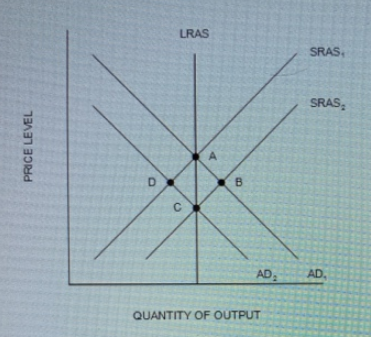Tom carries on loud cellphone conversations in public places. He values such conversations at $1 per minute. Steve prefers piece and quiet. He would pay $2 per minute to avoid overhearing Tom's conversations. In this situation
a. Tom should quit using his cellphone because that would be a Pareto improvement
b. Tom should quit using his cellphone because that would be efficient
c. If Steve made a side payment of $3 to Tom, that would be a Pareto improvement
d. If Steve paid Tom 50 cents per minute to quit talking, that would be a Pareto improvement
e. If Steve paid Tom $1.50 per minute to quit talking, that would be a Pareto improvement
E
You might also like to view...
Refer to Figure 33-2. If the economy starts at A, a decrease in the money supply moves the economy

a. to A in the long run
b. to C in the long run
c. back to A in the long run
d. to D in the long run
Workers often have ________ contracts and so their wages are ________
A) short-term; sticky B) short-term; flexible C) long-term; flexible D) long-term; sticky